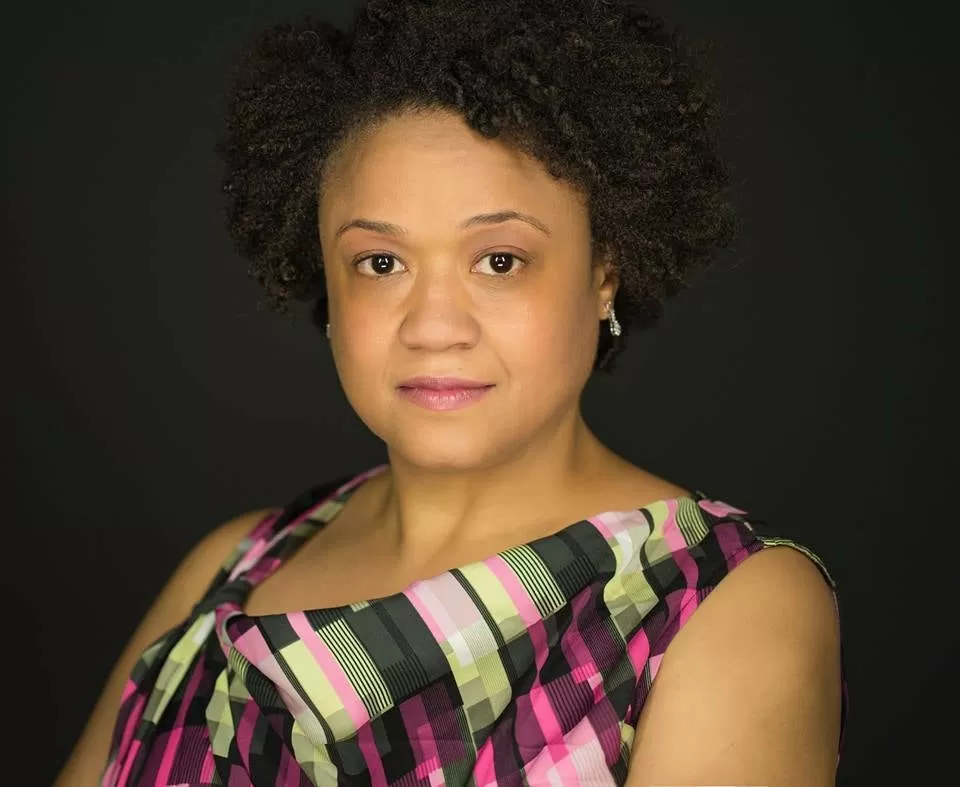The author in April of 2022.
The glass conference room looked out onto the parking lot, Lake Shore Drive, and in the distance, Lake Michigan. The sun was already high, and the heat of the day had pressed in. Rachel, my supervisor, sat across the glass table. I eased into one of the conference chairs, careful not to let it roll out from under me.
Rachel had scheduled the meeting on my calendar just 15 minutes before I arrived at work. It was titled “Going Forward,” one of those vague corporate phrases that never bodes well.
She had only been with the company for eight weeks. We hadn’t yet established a strong working relationship. It wasn’t our first one-on-one, but it was the first that showed me what was coming. It marked the beginning of a tense dynamic that chipped away at me until, a year and a half later, I found myself at my desk, wondering if I had to completely break to have someone recognize the harm I was carrying.
“As a woman,” she said, “I will no longer let my voice go unheard.”
For me, it was a moment of tone deafness and a clear signal that she would make everything about her. I am a Black woman. Both my race and gender are silenced in these spaces, and her words erased that reality. My voice isn’t often welcome in rooms like this, so her opening felt less like solidarity and more like a monologue.
She then told me she was frustrated that I had kept my back to her during a recent meeting with our director. I remembered the moment: She and the director stood behind me while I read dates off the calendar on my screen to keep us on track. My desk faced the wall, so turning to her would have meant moving my entire computer setup. It wasn’t personal. It wasn’t even memorable. But here we were.
When I tried to respond, she raised her hand to stop me. My throat tightened. My shoulders rose. I wasn’t angry; I was holding back tears. I shut down, running through lines in my head just to get through the rest of the meeting without breaking.
This was never about the calendar. It was about power.
It wasn’t the first time she had managed me through tone policing or passive-aggressive feedback. During the meeting, she raised her hand to interrupt me more than once, showing little interest in dialogue and focusing solely on asserting her authority, which was wrapped in the language of feminism. I stood up suddenly, my voice sharp: “I have a busy day, and you bring me in here for this? I’m leaving.”
Then I walked out.
That moment was one of many efforts to reshape me into a version of Black womanhood palatable to predominantly white nonprofits. What feels subtle to others is glaringly apparent to Black women — it is our daily reality. Be intelligent but not too assertive. Be resilient but never tired. Be stylish, composed, and above all, non-threatening.
Nonprofits can be particularly insidious because we often associate them with altruism and social good. However, many are just as cutthroat as corporations, only harder to hold accountable, as their mission statements frequently promise justice and equality.
Over the years, I’ve been told I was too quiet. Too loud. Too aloof. Too emotional. I’ve been corrected for turning a whiteboard the “wrong” way. Written up for not sharing enough ideas — despite having submitted a folder full of them. Every adjustment I made was met with new criticism. Natural hair was “radical.” Straightened hair was “polished.” I wore painful shoes, uncomfortable clothes and full makeup all to seem “professional.” I smiled when I didn’t want to. I bit my tongue when I needed to speak.
The 2018 report, Women of Colour in the Nonprofit Sector, confirms this pattern. Women of colour are often concentrated in lower-paying, lower-visibility roles and face heightened scrutiny when they advance. Many report that feedback is laced with coded language about “fit” or “tone,” and that speaking up about inequity risks being labeled “difficult” or “angry.” These findings mirror my own experience.
I’ve since learned my experience isn’t unique. Robin DiAngelo, in “White Fragility,” writes about how white people weaponize emotions to avoid accountability. Tema Okun’s work on white supremacy culture shows how



